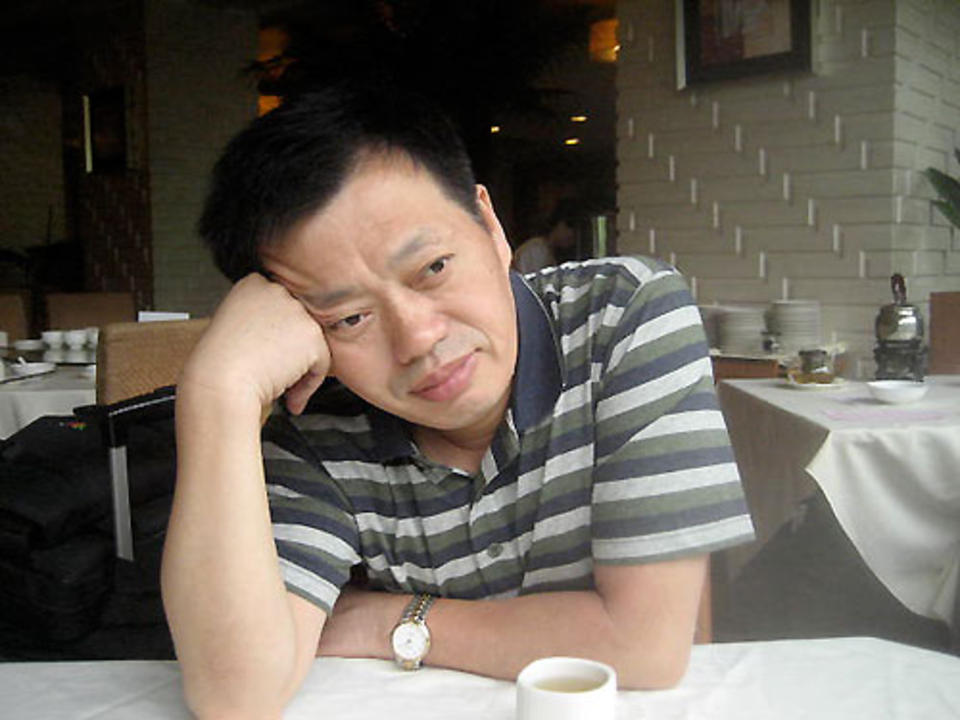Ouyang Yu. Lake of Perfumed Soap

By the side of the lake, I smelled a faint aroma
Similar to the body fragrance of a woman
And we started talking about Gulag
When he said that, in fact, many writings of
Solzhenitsyn’s were not done by him
But that were copied from his inmates’ notebooks
I said: Is the scenery beautiful there?
He said: So beautiful, just near Sakhalin Island
I said: It’s about time we gave Gulag a go by turning it
Into a tourist attraction and found someone rich and go there on an investigative tour
As all the empty cells could be used as rooms for accommodation
And those who enjoy masochism
Might as well check in to have a taste of how it feels
And what it’s like to be imprisoned
With no meals served, on top of being whipped
The more whipped the better, like the sexual abuse club in Canberra
And those with big bellies will be starved
Out of shape, on a regime of self-management
As for the ones who write, it’s a good opportunity to keep a diary or notebook
To be included in a Gulag collection of tourist writings
He burst into laughter while I smiled a small smile
For this idea of mine, similar to a dream
Written in Chinese by Ouyang Yu
Self-translated into English by Ouyang Yu
This is one of the main poems written by Mr. Ouyang Yu when he participated in the International Poetry Festival in Astana in 2018. During the festival, the poets went to Bayanaul. We lived on the shores of a lake called Sabyndy Lake. We were talking about poetry and words, nature and poetry, inspiration and feelings, history, and the present. Suddenly Ouyang Yu talked about the Soviet forced-labor camps. Just before that, I had told the poet about the history of the Karaganda forced-labour camp. We talked about Solzhenitsyn's book "The Gulag Archipelago". It was obvious that the nature of the lake influenced this topic. Especially, who knows why one side of the lake was surrounded by a barbed-wire fence. At the entrance, there was an iron gate and an abandoned two-room house. Although it was not cold, it was cloudy and a little windy. As usual the autumn’s weather. Half an hour later we left the lake. After getting into the car, the poet started writing a poem on his telephone. He wrote and read it on the road. That's when I discovered that I had gone into the poem. Kazakh poets Bakhyt Bedelkhan, Serik Aksunkar, and others were in the car. Poets discussed the poem and shared ideas. At the same time, Ouyang Yu wrote a number of poems. Later I translated them into Kazakh and published them in the press.
This poem is a good revelation of the nature of Ouyang Yu's poetry. Over his forty years of work, the poet has adhered to one key point. It is the principle that poetry is directly related to intuition, that poetry is not something that we consider thoughtfully and then write. Apparently, the poet relies on the world he once captured in the poem. But there is a difficulty in writing like this. For example, the world you write should consist of a poetic element. Without it, it will not be a poem. In the above verse, the poet uses such an element in Solzhenitsyn's book "The Gulag Archipelago", which is well known to all mankind. The cells where prisoners were held in the snow and ice. He used the scene in the opposite sense, connecting it with the situation of today's humanity. For example, in the past, people in those rooms had to endure all kinds of hardships in order to survive, however today, people have become spiritually depraved, unable to cope with the demands of life. Even if you open the bloody rooms in the Gulag Archipelago to them, they can go in to search for fun for the pleasure of the body. This is today's human paradox! The poet wrote this scene and conveyed it flexibly and humorously.
Written by Ardakh Nurgaz
